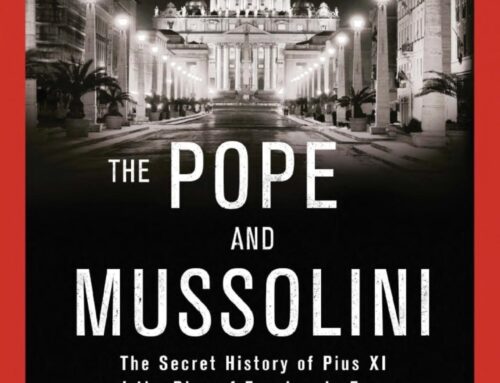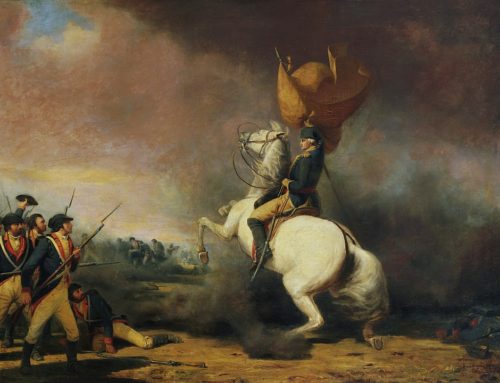Because I am confined to my apartment for much of the day given my illness and the hot weather, I chose to watch again Ken Burns’ Documentary of the Civil War given the controversies surrounding the Civil War Statues. The message that I wish to convey after watching this documentary is that (1) we as a nation need to study the Civil War so that we can learn at a minimum how to avoid the hatreds that led to this catastrophe (2) we need to recognize that despite bitter fighting, the soldiers on both sides had enormous respect for their adversaries (3) Abraham Lincoln understood better than any of his contemporaries the motivations and the consequences of a tragedy, where more Americans died than in all of our other wars combined.
Several years ago, I gave a course on the Civil War. I hope that God gives me the strength to teach once again a course on the Civil War. It richly deserves our attention.
Lincoln’s Second Inaugural Address and Gettysburg Address are considered two of the greatest English speeches in history. Lincoln was visibly tired by the beginning of his second term. He lived barely five weeks after giving this speech. He had presided over the most tumultuous period in American history, a civil war that cost over 600,000 lives. While the Union prospects for victory seemed likely, Lincoln still had concerns that the South would support guerrilla warfare against the reconstituted federal government. To ameliorate the hard feelings, the President sought to create an amicable truce where Confederate leaders, soldiers, and civilians would be treated magnanimously. (I fear that instead of having empathy for our political opponents and seeking compromise, we highlight our differences.)
We should note this was a period of religious fervor on both sides, and Lincoln sought to create the appropriate atmosphere by quoting from the Bible. While Lincoln was a harsh critic of slavery, he noted that both sides were responsible for this terrible institution. (Most of the slaves were transported to the United States by Yankee skippers.)
In the first paragraph of the speech, Lincoln wanted to give comfort to his listeners and readers. He provided a brief, cogent historical summary of the past four years.
“Fellow countrymen: At this second inaugural appearing to take the oath of the presidential office, there is less occasion for an extended address than there was at the first. Then (Lincoln advanced his prescription) a statement, somewhat in detail, of a course to be pursued, seemed fitting and proper. Now, at the expiration of four years, during which public declarations have been constantly called forth on every point and phase of this great contest which still absorbs the attention and engrosses the energies of the nation, little that is new could be presented. The progress of our arms, upon which all else chiefly depends, is as well known to the public as to myself; and it is I trust, reasonably satisfactory and encouraging to all. With high hopes for the future, no prediction in regard to it is ventured. (Lincoln had suffered major disappointments following Union victories at Antietam and Gettysburg.)
On the occasion corresponding to this four years ago, all thoughts were anxiously directed to an impending civil war. All dreaded it—all sought to avert it. Both parties deprecated war, but one of them would make war rather than let the nation survive, and the other would accept war rather than let it perish. And the war came. (Lincoln is blaming the South for initiating the conflict but doing so in a not inflammatory way)
One-eighth of the whole population were colored slaves, not distributed generally over the Union, but localized in the Southern part of it. These slaves constituted a peculiar and powerful interest. (Most of the wealth in South was ownership of slaves, rather than owning factories, businesses, etc.) All new that this interest was, somehow, the cause of the war. To strengthen, perpetuate, and extend this interest was the object for which the insurgents would rend the Union, even by war; while the government claimed no right to do more that to restrict the territorial enlargement of it. (Lincoln is making the case that under his administration; the institution of slavery would have been maintained.)
Neither party expected for the war the magnitude or the duration which it has already attained. Neither anticipated the cause of the conflict might cease with, or even before the conflict might cease with, or even before, the conflict itself should cease. Each looked for an easier triumph. Both read the same Bible, and pray to the same God; and each invokes his aid against the other. It may seem strange than any men should dare to ask a just God’s assistance in wringing their bread from the sweat of another men’s faces; but let us judge not, that we be judged. The prayers of both could not be answered—that of neither has been answered fully. Lincoln is condemning the institution of slavery, but pointing out that his opinion is not necessarily the feeling of either God or a correct summary of the institution of slavery.)
The Almighty has own purposes. If we suppose that American slavery is one of those offenses, which, in the providence of God, must needs come, but which have continued through his appointed time, he now wills to remove, and he gives to both North and South this terrible war, an the woe due to those by whom the offense came, shall we discern therein any departure from those divine attributes which the believers in a living God always ascribe to him? Fondly do we hope—fervently do we pray –that this mighty scourge of war may speedily pass away. Yet, if God wills that it continue until all the wealth piled by the bondsman’s two hundred and fifty years of unrequited toil shall be sunk, and until every drop of blood drawn by the lash shall be paid by another drawn with the sword, so it must be said, “ The judgments of the Lord are true and righteous altogether.” (Lincoln correctly highlights that people of the North contributed to the institution of slavery.)
With malice toward none; with charity for all, with firmness in the right as God gives us to see the right, let us strive to finish the work we are in; to bind up the nation’s wounds; to care for him who shall have borne the battle, and for his widow, and his orphan—to do all which may achieve and cherish lasting peace among ourselves, and with all nations. (Unlike our present environment, Lincoln has empathy for the plight of both sides.)



